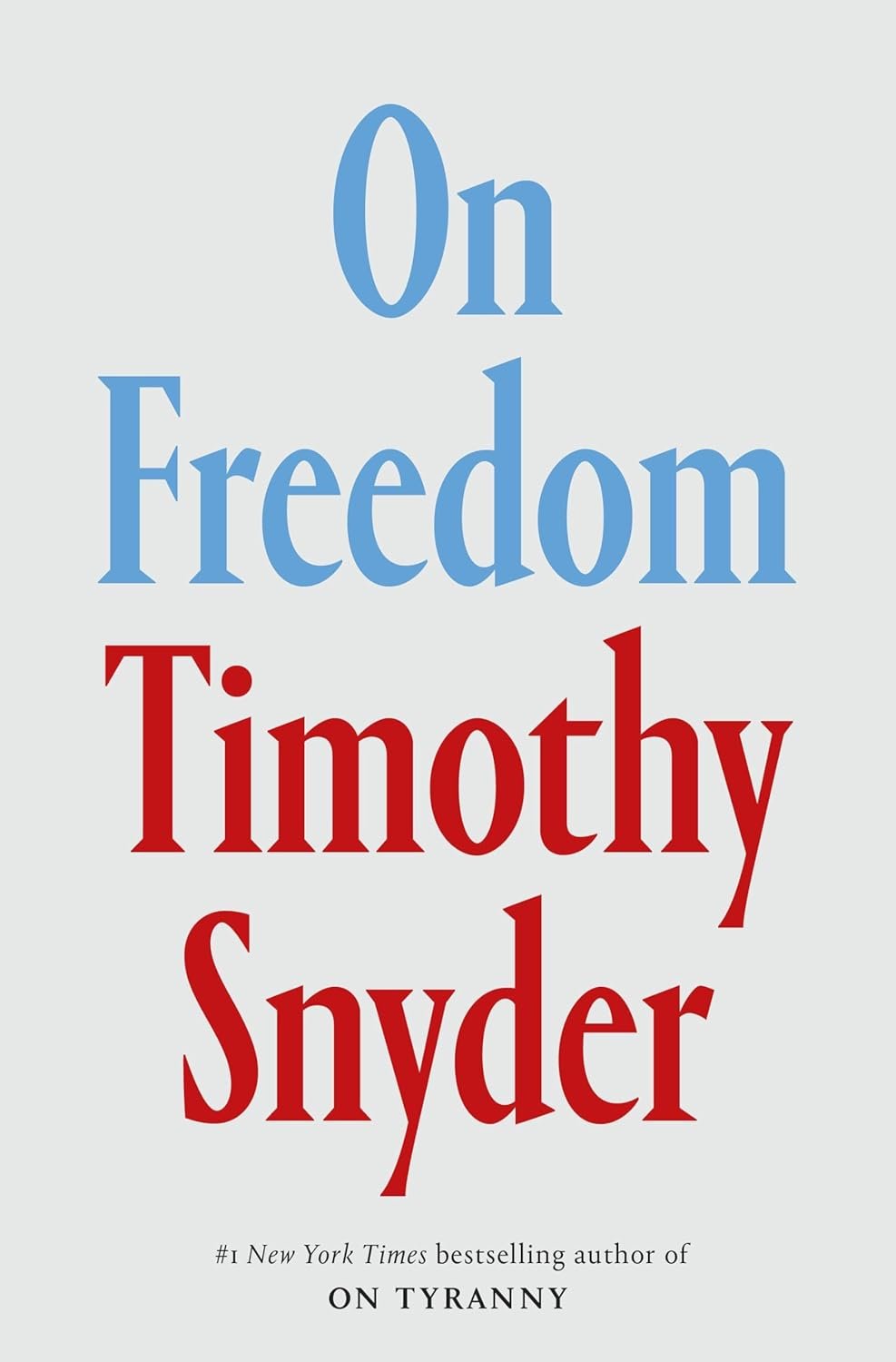What we’re reading (featured in our weekly newsletter) SUBSCRIBE HERE
AGE OF REVOLUTIONS. Progress and Backlash from 1600 to the present. (Fareed Zakaria, CNN Host and best-selling author.)
In this new release, Fareed Zakaria chronicles the eras, events, and movements that have shaken norms and shaped the modern world. First, the series of transformations in the 17th Century, which made tiny Netherlands the richest nation in the world. Second, the French Revolution and the bloody aftermath that haunts us to this day. And, third, the “mother of all revolutions,” the Industrial Revolution that catapulted Great Britain and the US to global dominance. And alongside those, Zakaria explores four present world-shaping revolutions: globalization, technology, identity, and geopolitics. (Definitely not a 🏖️ beach book, but well worth the effort.)
In On Freedom, historian Timothy Snyder challenges the common idea that freedom means simply being left alone. Instead, he argues that true freedom is collective—the power to shape our future together through shared responsibility, strong institutions, and mutual trust. Drawing on history, philosophy, and personal insight, Snyder offers a bold reimagining of freedom as the foundation for a thriving, democratic society.. (Timothy Snyder, Yale historian and N.YT. best seller.)
STATECRAFT. And how to restore America’s standing in the world.
“Statecraft is as old as politics. Plato wrote about it, Machiavelli practiced it.
After the end of the Cold War, some predicted that statecraft would wither away. But, in the Globalized World-with its fluid borders, terrorist networks, and violent unrest-statecraft is more necessary than ever. Ross contends that the current our current problems stem from several administrations' failure to deal with them artfully, using the tools of statecraft- diplomatic, economic, and military-to advance our national interests. Walter Isaacson: “With the rise of terrorism, the art of statecraft is more critical than ever. This is an essential book for our time.” (Dennis Ross, Middle East Envoy and the chief negotiator in the Presidential Administrations of George H. W. Bush and Bill Clinton.)
Common Sense. No, I did not read this when it was originally published (1776), but I’ve read it several times since. And, I have to tell you, Common Sense is as clear and an explanation of what our founders were thinking when they invented America as you will ever read. Its arguments for liberty, equality, and representative government continue to resonate centuries after its publication, and no, it is not written in Old English script. It’s 48 pages long, and it’s available on Amazon!
(Thomas Paine, Working class English immigrant, author, and patriot.)





